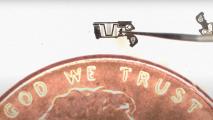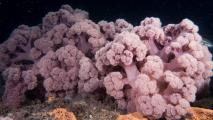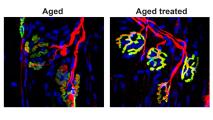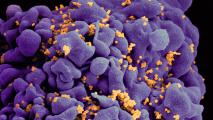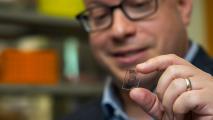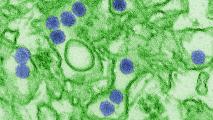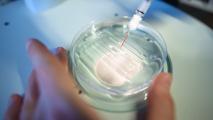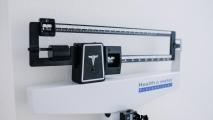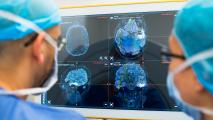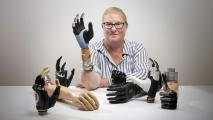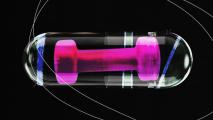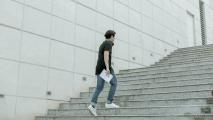
Biotech
Human history has been all but defined by death and disease, plague and pandemic. Advancements in 20th century medicine changed all of that. Now advancements in 21st century medicine promise to go even further. Could we bring about an end to disease? Reverse aging? Give hearing to the deaf and sight to the blind? The answer may be yes. And soon.
More
Ex-NASA engineer Mark Rober created the world’s smallest Nerf gun — from DNA
Mark Rober and Pallav Kosuri created a Nerf gun so tiny they had to build it out of DNA. This DNA “origami” has the potential to revolutionize engineering.
Dumbing down or wising up: how will generative AI change the way we think?
Artificial intelligence tools are now managing huge swathes of information on our behalf, potentially changing what and how we think.
A short history of insomnia and how we became obsessed with sleep
Insomnia is big business and getting bigger. When did sleep become so important, so elusive, and so expensive?
Sex life discovery raises IVF hope for endangered purple cauliflower soft coral
The purple cauliflower soft coral Dendronephthya australis, now listed as an endangered species, has a new hope of survival with IVF.
Blocking this one protein could strengthen muscles
Stanford researchers have figured out how a therapy that blocks a single protein can reverse age-related muscle loss in mice.
CRISPR cure for HIV now tested in 3 people
Excision BioTherapeutics has shared data from the first human clinical trial of a CRISPR cure for HIV. Here’s what we know — and don’t know.
“Living pharmacies” could mean you never forget to take your meds again
The US government is funding the development of “living pharmacies,” implants containing cells that release medications on demand.
Cardio improves cognitive function & mental health. Here’s the best way to do it at home.
While many people do cardio exercise to keep physically fit, research shows cardio also improves cognitive function and mental health.
MIT’s soft fiber implants could offer drug-free pain relief
An innovative new way to use fiber-pulses to inhibit pain.
Why 20 women were just deliberately exposed to Zika
In a first-of-its-kind human challenge trial, Johns Hopkins University researchers deliberately exposed 20 women to the Zika virus.
New “anti-CRISPR” discovered in viruses
A new “anti-CRISPR” system could help us control gene-editing tech and battle antibiotic-resistant superbugs.
Rancid food smells and tastes gross − AI tools may help scientists prevent that spoilage
A group of chemists are using artificial intelligence to extend the life of food products, by teaching AI models about rancidity.
What BMI can’t tell us about our health
Body mass index (BMI) continues to be the go-to tool for medical doctors and population researchers despite saying little about our health.
“Hydrogel” drugs could suppress HIV with minimal treatments
An injectable solution that self-assembles into a hydrogel to deliver 6 weeks of anti-ARV drugs could make managing HIV less of a burden.
AI diagnoses brain tumors in 90 minutes or less
A new AI that can identify the type of brain tumor a patient has while surgeons are removing it could lead to better outcomes.
This bionic hand is fused to a woman’s bones, muscles, and nerves
A new way of merging the body with a bionic hand provided a woman with more control over her prosthetic and less phantom limb pain.
New weight loss drug acts like an “exercise pill”
A new candidate weight loss drug called SLU-PP-332 was found to boost muscular and aerobic endurance in mice.
New brain implant for depression tested in people for the first time
A tiny brain implant designed for at-home neurostimulation has been demonstrated in people for the first time.
“The twin boom”: why twinning is on the rise
Since the 1970s, the rate that twins are born has doubled in most developed countries. What caused this and is it going to change soon?
Exercise scientist explains what your daily step goal should be by your weight
Tracking daily step counts can be a useful tool for weight management, but only if you tailor it to your own body weight.
Get inspired with the most innovative stories shaping the world around us.













